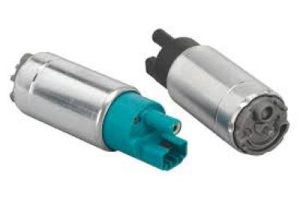Fuel pump problems are preventable by keeping the fuel system clean with maintenance and attention to fuel quality and driving habits. It is that system as well, at the bottom of your fuel tank…never ever let it go below 1/4 … or to much air gets in and cools it down too. The fuel helps keep the pump cool - particularly in-tanks; with all of that fuel around it, somewhere to hide out. Studies in the automotive industry have identified a 30% higher rate of pump failure among vehicles placed on this type of cycle than when maintained at above about one-quarter full.
High-quality fuel protects the bomb from clogging and wear. Filter blockages and pump component damage results from contaminants in low-quality or poor storage fuel. Contaminated fuel causes around 20% of fuel pump problems as debris clog up and restrict flow, causing internal wear. Avoiding this is simple, sticking with high quality fuel and running a bottle of FI cleaner every now and then prevent the system from gunking up while keeping the pump under protection.
Another example of preventing a problem is replacing your filters regularly. Fuel filters capture any impurities before they can reach the pump, and when those filters get obstructed that means your pump will begin to overwork — resulting in a potentially earlier failure. Fuel FilterMost carmakers recommend replacing the fuel filter every 30,000 to 50,000 miles depending on driving conditions. Mechanics and repair experts say that regularly changing out a blocked filter can reduce pump strain by several years up to 25%.

In this case, fuel pump problems are avoided with the most important which is the electrical checks and stable voltages. The pump works best at a consistent voltage of 12-14v, so make sure the wiring and connections are good to avoid hiccups. Improper wiring or a low voltage can cause the pump to operate erratically and prematurely fail. The sensors will only travel that distance, so automotive electrical gurus recommend yearly checks of the pump's wiring connections to prevent interruptions or poor power flow is also responsible for around 15 percent of pump-related problems.
Also, refueling only when your tank is nearing or completely empty and avoiding aggressive driving habits (i.e., hard acceleration) as well minimizes the strain on fuel pumps. Accelerating quickly causes additional work for the pump so it wears out over time, and idling your vehicle at longer stops can cause the pump to become too hot with low airflow. A proper running Fuel Pump operates most suitably during easy, normal driving applications which can help the chances of it being efficient and lasting a long time in service.
By keeping a close eye on fuel, changing the filters like clockwork, maintaining stable voltage and driving safely wherever you go, fuel pump problems are almost completely eradicated — this resulting in fewer instances of same-day failure or substandard engine performance.